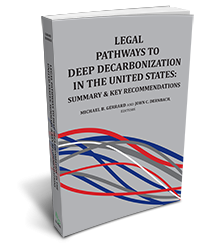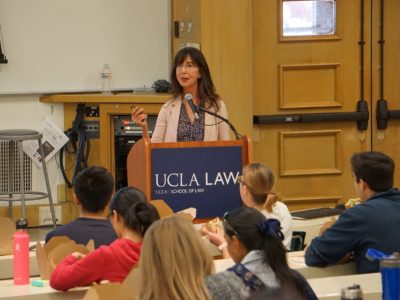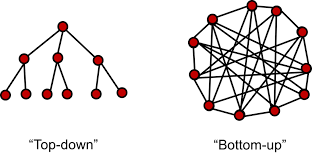Energy
Deregulating Methane No Matter What
Emmett Institute faculty submit letter opposing Trump’s proposed rollback on methane regulations
Recently, my colleague Sean Hecht and I jointly submitted a comment letter opposing a new EPA Proposed Rule that would roll back standards limiting methane emissions from oil and natural gas production, processing, transmission, and storage facilities. This Proposed Rule essentially revokes two Obama-era regulations, finalized in 2012 and 2016, that first established these methane …
Continue reading “Deregulating Methane No Matter What”
CONTINUE READINGGoing Nuclear?
Nuclear has some serious problems, but it may be worth hedging our technology bets.
Nuclear power has been an important source of zero-carbon energy, though it has been plagued by other problems. Does it have a future in our effort to decarbonize the grid? According to the Union of Concerned Scientists (UCS), a third of U.S. nuclear plants, or about twenty percent of the nation’s total nuclear capacity, are …
Continue reading “Going Nuclear?”
CONTINUE READINGClimate Politics Down Under
Australia is leaping from the frying pan into the fire.
Australian climate politics has been strange if not chaotic. And in terms of climate policy, things seems to be going from bad to worse. This is partly a function of general political upheaval. In an enlightening 2018 paper, three University of Melbourne law professors (Baxter. Milligan, and McRae) traced the developments from 2007 to 2016. …
Continue reading “Climate Politics Down Under”
CONTINUE READINGPutting the Squeeze on Coal
It’s not enough to eliminate coal-fired plants. We have to cut back on coal production and sale.
Coal use by American utilities has declined sharply and will continue to decline. But we shouldn’t focus solely on U.S. emissions. But the industry also exports coal, and there’s been a big surge in coal exports in the past two years, much of it involving India. So it’s not enough to curtail coal use in …
Continue reading “Putting the Squeeze on Coal”
CONTINUE READINGUnderstanding the Green Energy Transition: A Conversation with David Spence about EnergyTradeoffs.com
UCLA Professor of Law and Legal Planet contributor William Boyd recently interviewed David Spence of the University of Texas School of Law about EnergyTradeoffs.com, a new web site that explores some under-discussed aspects of the green energy transition. BOYD: Tell me about EnergyTradeoffs.com. Why this web site and why now? SPENCE: EnergyTradeoffs.com is aimed at …
CONTINUE READINGFollow the Money (Again!): New Investment in the World Energy System Still Dominated by Fossil Fuels
It’s that time of year again. Last month, the International Energy Agency (IEA) released its annual World Energy Investment Report, providing a survey of investment trends in the global energy sector. If you want get a sense of where capital is going in the world energy system, this is one of the best sources out there. …
CONTINUE READINGGetting to 2050
A roadmap for achieving an 80% emissions cut.
To do its part in keeping climate change to tolerable levels, the United States needs to cut its carbon emissions at least 80% below 1990 levels by 2050. That’s not just a matter of decarbonizing the electricity sector; it means changes in everything from aviation to steel manufacture, and reducing not only CO2 but also …
Continue reading “Getting to 2050”
CONTINUE READINGChina’s Energy Transition
Q&A with Barbara Finamore, Senior Attorney & Asia Senior Strategic Director, NRDC
Barbara Finamore is an attorney and leading expert for Natural Resources Defense Council on a wide range of China climate, energy, and environmental issues. I worked with Finamore to found NRDC’s Beijing office in 2006. In her new book Will China Save the Planet?, Finamore explores efforts by China, today the world’s largest emitter of …
Continue reading “China’s Energy Transition”
CONTINUE READINGBottoms-Up! An Emerging New Governance System (3)
Bottom-up strategies can ultimately pave the road for stronger international agreement.
It is difficult to measure the extent of positive feedback between climate initiatives. But it seems evident that such feedback does exist. A major climate initiative in one jurisdiction seems to encourage climate action elsewhere. This makes climate action a more appealing prospect for any individual jurisdiction, because by acting it can increase climate actions …
Continue reading “Bottoms-Up! An Emerging New Governance System (3)”
CONTINUE READINGBottoms-Up! An Emerging New Governance System (2)
Bottom-up appraches aren’t just fallbacks when top-down fails. They have their own strengths.
There are some obvious advantages to top-down climate police, whereby a uniform global climate policy is adopted at the global level and then seamlessly implemented by nations, or whereby a similar process takes place at the national level. Of course, this top-down model requires first global agreement on a uniform policy and then effective …
Continue reading “Bottoms-Up! An Emerging New Governance System (2)”
CONTINUE READING













